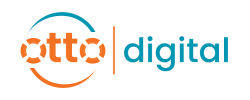CRM for Small Business Demystified: The Ultimate Guide to Customer Relationship Management for SMEs

In today’s digital era, managing customer relationships effectively is critical for business success. Companies around the globe rely on robust CRM software to streamline their processes, boost sales, and foster lasting customer relationships. But what exactly is CRM software? And what does CRM stand for? At OTTO Digital, we have decades of experience in crafting bespoke CRM solutions. As leading CRM consultants in Melbourne, Sydney, and Brisbane, we are passionate about solving business challenges with custom-designed CRM systems that drive results. In this comprehensive guide, we demystify CRM for small business, explain its meaning, and show how CRM programmes can transform the way you manage your customer relationships.
What is CRM for Small Business? A Comprehensive Definition
At its core, CRM software is a tool designed to help businesses manage interactions with current and potential customers. Let’s delve deeper into what this means for small businesses.
Defining CRM Software for Small Business
CRM software stands for Customer Relationship Management software. It is a system that allows businesses to store, organise, and manage customer data in a centralised location. Whether you’re in sales, marketing, or customer service, CRM software streamlines these processes to ensure that every interaction is tracked and optimised for success.
- CRM Software Definition: CRM software is a technology solution that helps companies organise customer data, manage sales leads, track communications, and automate various business processes. It acts as the backbone of customer relations, ensuring that every customer interaction is efficient and personalised.
- CRM Software Meaning: When we discuss CRM software meaning, we refer to its role as an essential tool that bridges the gap between businesses and their customers. It is not merely a software tool but a strategic asset that supports growth, enhances customer experiences, and improves operational efficiency.
- What Does CRM Stand For: Simply put, CRM stands for Customer Relationship Management. This acronym encapsulates the purpose of these systems: to manage relationships and interactions with customers effectively.
Why is CRM Software Essential for Small Business?
Modern small businesses operate in fast-paced and competitive markets where maintaining a personal touch with every customer can be challenging. CRM software addresses this challenge by:
- Centralising Customer Data: With all customer information stored in one place, businesses can quickly access and update data, ensuring accuracy and consistency.
- Enhancing Communication: Automated workflows and communication tools ensure that customers receive timely responses, thus improving overall satisfaction.
- Boosting Sales Conversions: By tracking every interaction and lead, CRM software provides valuable insights that help optimise the sales process and secure more deals.
- Improving Customer Retention: The effective use of CRM tools leads to improved customer service and engagement, resulting in higher retention rates.
To learn more about how a CRM system can transform your business, please visit OTTO Digital.
The Evolution and Impact of CRM on Small Business
CRM systems have evolved significantly over the years—from simple contact management tools to sophisticated, integrated platforms that support multiple business functions. This evolution has revolutionised the way small businesses manage customer relationships.
A Brief History of CRM
In its early days, CRM systems were basic databases designed to track customer contact details. As technology advanced, these systems evolved into comprehensive solutions offering advanced analytics, automation, and integration with other business systems.
How Has CRM Transformed Business Operations?
The impact of CRM on business is profound:
- Streamlined Processes: Modern CRM applications automate repetitive tasks, allowing employees to focus on more strategic initiatives. This increased efficiency leads to higher productivity and improved customer satisfaction.
- Data-Driven Decision Making: With all customer data centralised, businesses can analyse trends, forecast sales, and identify new opportunities—empowering them to make well-informed decisions.
- Enhanced Collaboration: CRM systems promote better collaboration among sales, marketing, and customer service teams by providing a unified view of customer interactions.
- Integrated Systems: Today’s CRM software integrates seamlessly with other business tools such as email marketing, social media, and e-commerce platforms, creating a cohesive ecosystem that boosts overall performance.
For further insights into how advanced CRM systems can benefit your business, visit OTTO Digital.
Exploring CRM Programmes: What Are They and How Do They Work?
One common question is, “what are CRM programmes?” Let’s break down this concept and understand how these programmes operate.
Understanding CRM Programmes
CRM programmes refer to the suite of applications and tools that make up a comprehensive CRM system. They are designed to manage all aspects of customer relationships—from lead generation and sales tracking to customer service and marketing automation.
- CRM Software Programmes: These include everything from basic contact management tools to advanced platforms offering robust analytics, automation, and integration.
- CRM Applications: Individual components or modules that form a CRM system. They are designed for specific tasks such as managing customer data, automating workflows, or generating reports.
- IT CRM System: This term encompasses the entire technological infrastructure supporting customer relationship management, including hardware, software, and integration tools.
How Do CRM Programmes Work?
At the heart of CRM programmes is the ability to centralise and analyse customer data. Here’s how they typically function:
- Data Collection and Storage: CRM software gathers data from various touchpoints—such as website visits, phone calls, and social media interactions—and stores it in a centralised database.
- Automation of Tasks: Many CRM applications include automation features that handle repetitive tasks (e.g., sending follow-up emails, scheduling appointments), ensuring that no customer enquiry goes unanswered.
- Analytics and Reporting: By analysing the centralised data, CRM systems provide insights into customer behaviour, sales trends, and marketing performance. These insights help businesses refine their strategies and improve engagement.
- Integration with Other Tools: A key feature of modern CRM software is its ability to integrate with other business systems, creating a unified platform for managing all customer interactions.
For more details on how CRM programmes work, please visit OTTO Digital.

Key Features and Benefits: The Value of CRM Systems for Small Business
Implementing a CRM system offers numerous benefits for small businesses. Here, we explore the key features of CRM software and the advantages they provide.
Essential Features of CRM Software
CRM software for small business is designed to enhance customer interactions and streamline processes. Some core features include:
- Centralised Customer Data: All customer information is stored in one centralised location, making it easily accessible for your team.
- Automation Capabilities: Automated workflows manage routine tasks, ensuring timely and efficient communication.
- Advanced Analytics: Built-in tools monitor performance, forecast sales, and identify emerging trends—crucial for data-driven decision making.
- Integration with Other Systems: Modern CRM applications integrate seamlessly with email, social media, and other essential business tools, creating a unified customer management ecosystem.
- Customisable Dashboards: Personalised dashboards provide an at-a-glance view of key metrics, enabling quick adjustments to strategies.
Benefits of Implementing CRM Software
Adopting CRM for small business brings significant advantages:
- Improved Customer Relationships: By offering a holistic view of customer interactions, CRM systems enable businesses to build stronger, more personalised relationships.
- Increased Efficiency: Automation and centralisation reduce time spent on manual tasks, freeing up staff for strategic initiatives.
- Enhanced Sales Performance: Better lead tracking and customer insights help optimise the sales process, resulting in higher conversion rates.
- Better Customer Retention: Timely, personalised communication fosters loyalty and ensures customers remain engaged over the long term.
- Scalability: As your business grows, CRM software scales with you, ensuring that your processes remain effective and efficient.
For more on how CRM can transform your business operations, please visit OTTO Digital.
Choosing the Right CRM Software for Small Business
With a multitude of CRM solutions available, choosing the right one for your small business can be challenging. Here are some key considerations to help you make the best decision.
Factors to Consider When Selecting a CRM System
- Business Needs and Goals: Identify your specific requirements—be it lead management, customer service, or sales automation. A clear understanding of your needs is essential.
- Scalability and Flexibility: The chosen CRM system should be able to grow with your business and offer customisation options to fit your unique processes.
- Ease of Use: A user-friendly interface is crucial to ensure rapid adoption and efficient use by your team.
- Cost: Consider the overall cost of ownership, including licensing fees, implementation, and ongoing maintenance. Compare various CRM packages and assess their ROI.
- Support and Training:
Choose a provider that offers comprehensive support and training, ensuring your team can fully utilise the system’s capabilities.
At OTTO Digital, our experienced CRM consultants work closely with you to ensure that the selected CRM system meets your business needs and drives growth. Discover our bespoke CRM solutions by visiting our website.
Advanced CRM Applications and Integrations for SMEs
Modern CRM systems have evolved far beyond simple databases. They now integrate with various business tools, providing comprehensive insights and automation that enhance overall operations.
Enhancing CRM with Advanced Integrations
- Salesforce and CRM Integrations: Many businesses integrate Salesforce with their CRM software to boost data sharing and overall performance. This seamless integration streamlines workflows across different systems.
- CRM Management Software and IT CRM Systems: Advanced CRM management solutions offer detailed analytics, automation tools, and customer engagement features that work with your existing IT infrastructure.
- Custom CRM Applications: Tailor-made CRM applications can be developed to address your unique business needs. Whether you require specialised reporting or customer service modules, a custom solution offers the flexibility you need.
The Future of CRM: Trends and Innovations
Emerging trends in CRM include:
- Artificial Intelligence Integration: AI-powered CRM systems analyse customer data in real time to predict behaviour and optimise engagement strategies.
- Mobile CRM Solutions: With the growing use of mobile devices, CRM applications are increasingly mobile-friendly, allowing your team to access critical information on the go.
- Cloud-Based CRM: Cloud-based solutions offer scalability, accessibility, and reduced IT costs, making them an attractive option for small businesses.
- Enhanced Customisation: Advanced customisation options ensure that your CRM system is tailored to your specific business requirements, offering a truly personalised solution.
To keep abreast of these trends and integrate advanced CRM solutions into your business, contact OTTO Digital for expert guidance.
Conclusion: Transform Your Business with the Best CRM Solutions
CRM software is not just a tool—it’s a strategic asset that can significantly enhance how you manage customer relationships. Whether you require a basic CRM solution or an advanced, customisable system, understanding its fundamentals is crucial for making informed decisions.
At OTTO Digital, we are committed to delivering tailored CRM solutions that address your unique business challenges. As leading CRM consultants in Melbourne, Sydney, and Brisbane, we partner with you to create systems that drive efficiency, enhance customer interactions, and boost your bottom line.
Recap of Key Points
- Definition and Meaning: We explored what CRM for small business means, its benefits, and its critical role in modern customer management.
- Evolution and Impact: The progression from basic contact management to sophisticated, integrated systems has revolutionised how businesses operate.
- Key Features and Benefits: CRM systems offer centralised data, automation, advanced analytics, and seamless integration, leading to improved customer service and increased sales.
- Choosing the Right System: Consider your business needs, scalability, ease of use, cost, and support when selecting a CRM solution.
- Advanced Integrations: Leverage AI, mobile, and cloud-based CRM solutions to future-proof your business.
- Expert Guidance: Our team at OTTO Digital is ready to support you at every stage of your CRM journey.
Are you ready to revolutionise your customer relationships and streamline your business processes? Contact OTTO Digital today for a free quote and discover how our expert CRM consulting services can transform your operations. With offices in Melbourne, Sydney, and Brisbane, we provide the best CRM solutions tailored for small businesses.
Thank you for reading our comprehensive guide on CRM for small business. Empower your team, streamline your operations, and build lasting customer relationships – because your business deserves nothing less than excellence.
Frequently Asked Questions About CRM for Small Business
CRM for small business is a tool that helps manage customer interactions, streamline sales processes, and improve overall customer management. It centralises customer data and automates routine tasks, making it easier to track leads and provide better service.
A CRM system improves efficiency, enhances communication, and ultimately drives sales. By automating repetitive tasks and providing actionable insights, it builds strong, lasting customer relationships.
When selecting a CRM system, consider ease of use, customisation, integration capabilities, cost, and support. Our team at OTTO Digital can help you choose the ideal solution.
Implementing CRM software improves customer relationships, increases operational efficiency, boosts sales performance, and helps retain customers through timely, personalised communication.
Absolutely. A well-implemented CRM system streamlines your sales processes, enhances lead management, and provides valuable insights that increase conversion rates. For more information or additional FAQs, please visit OTTO Digital.

Denounce with righteous indignation and dislike men who are beguiled and demoralized by the charms pleasure moment so blinded desire that they cannot foresee the pain and trouble.
Read More
